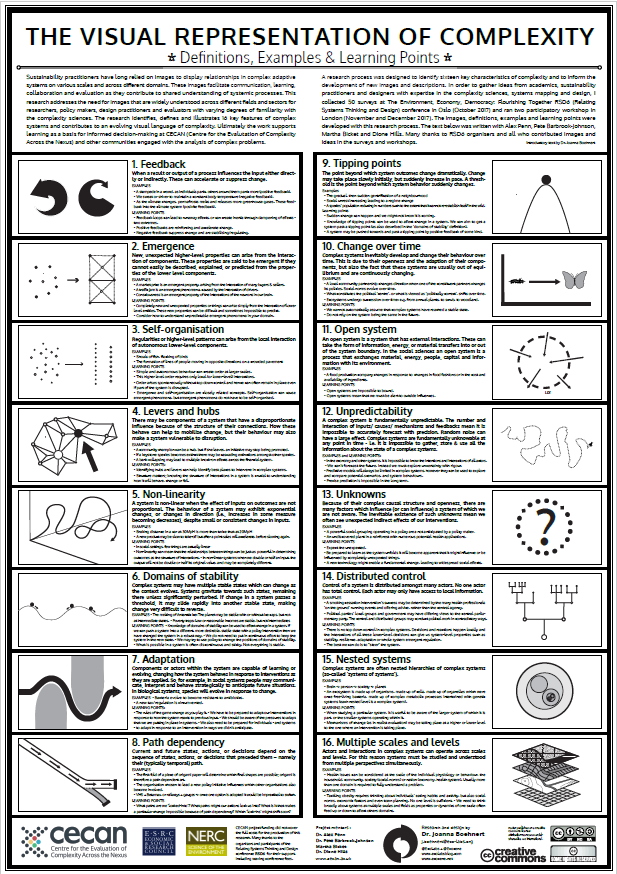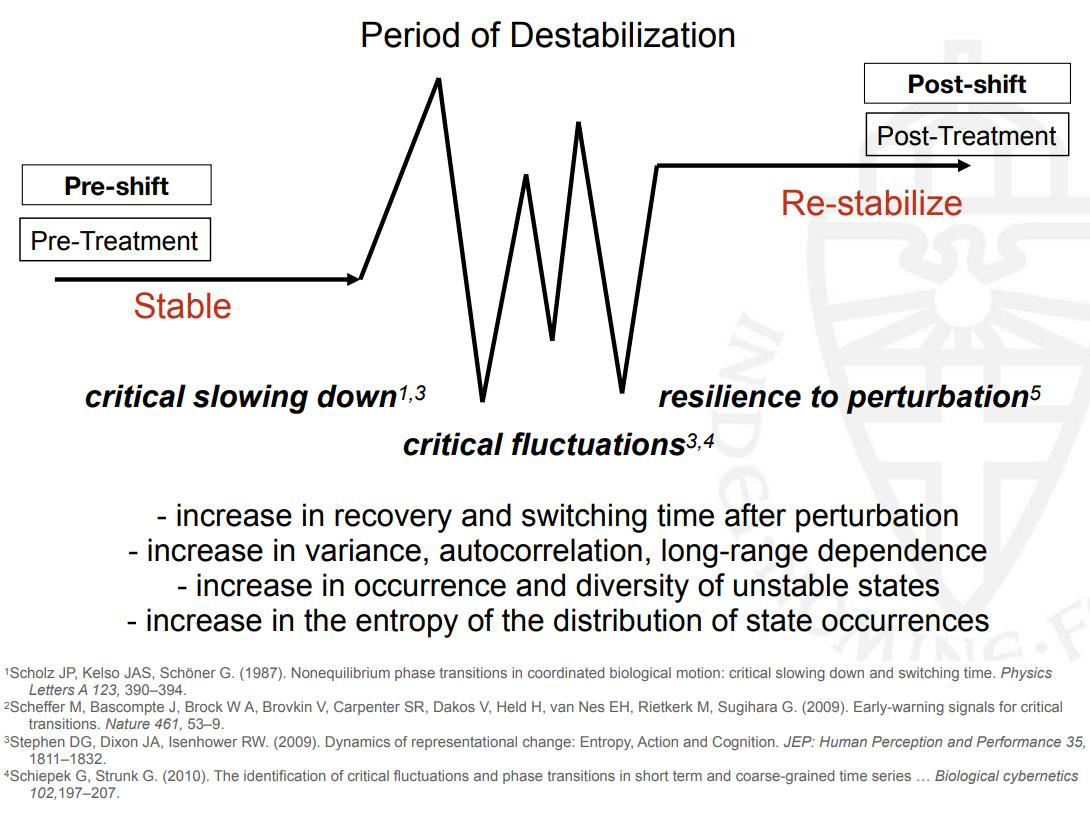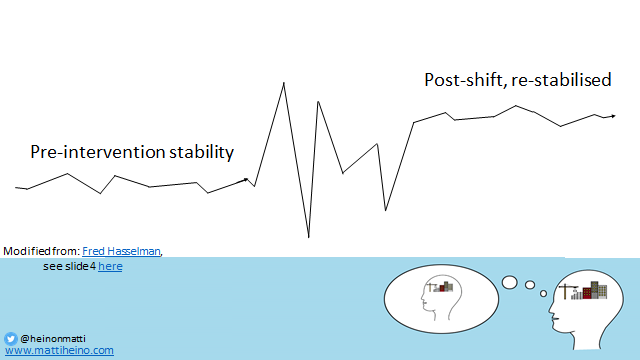
Note: Here's an interesting piece on application in medicine: fooledbyrandomness.com/medicine.pdf. I'd like to internalise it better, so let me know if you want to discuss.

Note: Relatedly, the terrain is known as the fitness or attractor landscape (see wonderful tutorial by @ncasenmare: ncase.me/attractors/). Understanding how it can be single-peaked, rugged or dynamic can improve your thinking.

Note: Time exists, as does history, and both have implications to what happens next in a system you intervene in. Which histories impede change, which facilitate it? What are the temporal dynamics? (journals.copmadrid.org/jwop/article.p…)

Note: Awareness of outside influences is crucial. Think in systems affecting systems, and try to create a systems map of these influences (see medium.com/disruptive-des… by @LeylaAcaroglu for an example).

Note: Here's a blog post on the topic: mattiheino.com/2016/12/27/det…. Also see @yaneerbaryam's lecture "The Science of Prediction" for a different take: necsi.edu/events/vidlib/

Note: One way to deal with unknowns is to place yourself in positions where there are large gains and capped losses (edge.org/conversation/n…). I'm interested in considering implications for intervention design, if anyone wants to have that discussion.

Note: This is the rationale for #localism, why hierarchies (and centralised health interventions?) fail under complexity (necsi.edu/complexity-ris…), and @necsi's manifesto of teams as a solution (necsi.edu/teams-a-manife…).

Note: Systems are also nested in timescales (see e.g. researchers.mq.edu.au/en/publication…). What you do daily affects what you (can) do weekly, and the constraints or options which appear on slower (e.g. weekly) timescales affect what's possible on faster ones.

You can't just analyse behaviour on one level. There are ways to deal with this, such as multiscale information theory (sciencetrends.com/describe-compl…), and @SimonDeDeo has a tutorial on @ComplexExplorer (complexityexplorer.org/courses/67-int…).

Well, not really. There's no end in complexity, only new dynamics, more or less stable, replacing old ones. The system you intervene in doesn't stop when you manage to hit a change target. Have fun and be responsible!
- @normonics
But what we find more and more is, that what a thing is made of, is at least secondary to what is the organisation of that stuff it's made of."












